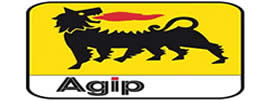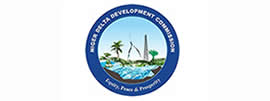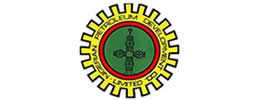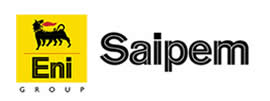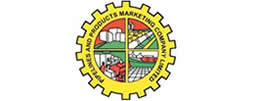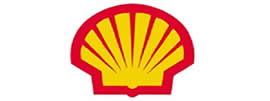- Home
- Safety Policy
Safety Policy
Safety Policy
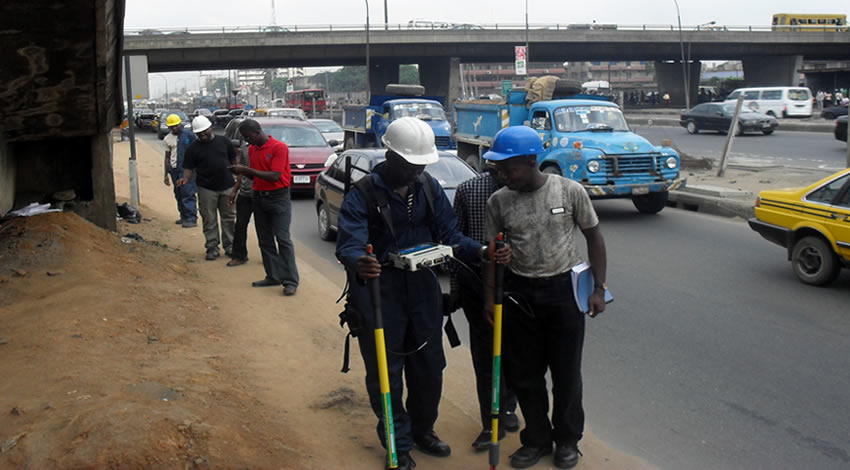
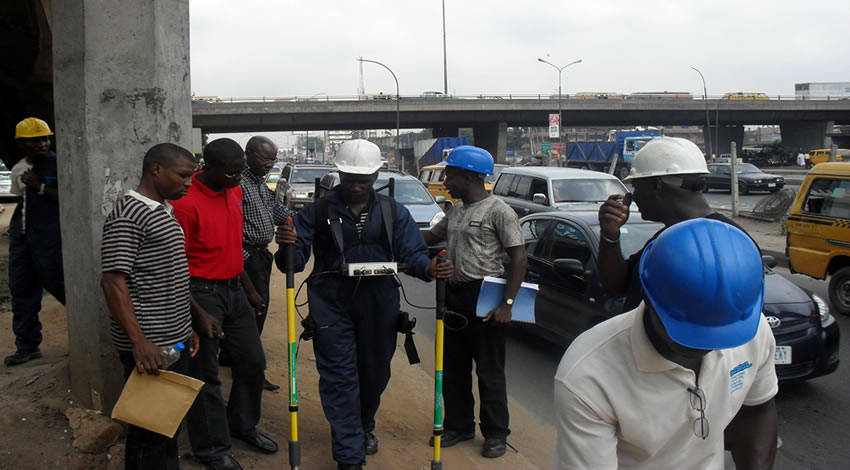
ICSCL HSE PLANS, AUDITS AND INCIDENTS/ACCIDENTS REPORTING PROCEDURES
ICSCL has put up systems and plans aimed at ensuring that the health, safety, security and environment of the personnel and site are maintained. These systems will be achieved through the use of the method of auditing and checks and balancing. ICSCL is committed to ensuring that its marked out plans as regards the health, safety, security and environment are adhered to.
- a) HSE Auditing and Reporting Plan:
The work sites shall be constantly monitored on regular basis by the project Safety Officer on activities carried out and workers attitude towards safety and ensuring compliance with safe work procedures and instruct workers where necessary on safety matters.
Safety/Technical audit of all machines/tools shall be carried out and a report made on such audit where necessary periodically.
Accident/incident investigation is about determining the sequence of events to find the course(s) of an incident with a view to prevent reoccurrence. Ideally, the investigation is not concerned with finding someone to blame.
- b) Method of Accident/incident Investigation:
(1) Establish the scope of the investigation
- Achievements expected of the team
- Determining the event leading up to the incident
- Formulate conclusion
- Recommendation to prevent a reoccurrence
(2) Timing
- Investigation should commence as soon as possible after the incident
- The quality of evidence deteriorates with time.
(3) Evidence collection
- The following question of when, where, who, what how and why should be asked and deviation noted.
(4) Fact Finding
- Inspect the site
- Note physical/technical evidences
(5) Compile/check the Evidence
- Compile evidence
- Check for completeness
- Check for inconsistencies
- Complete the picture
(6) Analysis & Conclusion
- c) Guidelines and follow-up plans applicable in accident/incident reporting and investigation:
– It is responsibility of every employee to report all accidents. Cover-ups shall be punished as the management deems fits.
– All unsafe acts/conditions (Lost Time Injuries and Fatalities), Restricted Workday Cases, Medical Treatment Cases and Near Misses must be reports.
– Accidents occurring on client’s site must be reported by the HSE-MS Manager/Officer to accompany management and the responsible party in the client’s organization using the fastest means of transportation.
– An accident reporting form (see appendix) shall be used to report accidents.
– On the seriousness and potential to cause damage of the accident. An accident investigation report shall be compiled after the conclusion of the investigation.
– The accident report, details of injured person(s), description of damage, description of accidents, evidence of witnesses, results of investigations, conclusions and recommendations/action taken
It is worthy of note that although the primary aim of accident reporting and investigation is not to punish, management reserves the right to carry out disciplinary action against any employee if it has been established that he/she will fully flouted ICSCL rules and regulations thereby leading to accident.
ENVIRONMENTAL WASTE MANAGEMENT PLAN
ICSCL is committed to ensuring clean and healthy environment especially in the course of our work. ICSCL takes environmental issues and monitoring seriously to ensure that all Federal Environmental Agency interim guidelines are complied with as regards our operations. Every effort will be concentrated towards minimization of environmental safety hazards released during the course of work on the project site in consultation with the client’s. Our objective is to preserve and prolong the life and health of personnel, the environment and people that might be affected by our operations.
Therefore in pursuant of the above, ICSCL shall segregate all waste generated into the following categories:
- a) Bio- degradable -vegetation, paper, etc.
- b) Solid Waste – Cement, blocks, gravel, etc.
- c) Ferrous Waste – metalwork, cables, iron pipes, etc.
- d) Plastic Waste – polythene, etc.
- e) Liquid Waste – paint, oil, etc.
All these waste materials are to be packed in bins and cans and stacked neatly and safely within a demarcated area in the work site and covered to avoid spreading. The waste shall be dispose off in accordance with CLIENT Waste disposal guidelines.
SECURITY AND COMMUNITY RELATIONS PLANS
– To provide cordial relationship between ICSCL and public-communities where ICSCL operates.
– Ensure necessary steps to maintain good relations with the communities at all time.
– Observing all protocols and customs in the community, paying due homage as may be required by the community and negotiated by ICSCL accordingly.
– Engaging local labour for unskilled/semi-skilled jobs but without compromising standards and HSE requirements.
HEALTH PLANS
ICSCL has put in place plans and targets to ensure that the health’s of its staff at site are maintained at acceptable level.
– Keep as low as practically possible exposure of personnel to health hazards such as contact with chemicals, toxic plants and water-borne diseases associated with drinking non-portable water.
– Ensure that all staff are medically fit prior to deployment and during the project execution period.
– Ensure availability of adequate medical facilities for all persons engaged in the execution of the project.
– Establish an effective medical evacuation system, with continuous monitoring of its effectiveness and implementing enhancements as necessary.
SAFETY PLANS
– No fatality amongst our ICSCL staff, sub-contractor employees and third parties engaged in or exposed to any activity relating to our operations.
– No. LTI (Lost Time Injury).
– Adherence to the “Permit to work” system and other agreed work procedures.
– No night sailing unless special dispensation is approved by management and/or an emergency situation develops.
– No drowning incident
JOURNEY MANAGEMENT PLAN
ICSCL shall monitor the adherence to journey management practices during mobilization; execution and demobilization for this contract by means of a simplified management system in which controls and responsibilities of staff involved in the process are clearly defined.
The aim of the journey management plan is to create an easy way to monitor all journeys, offering effective means of enabling transportation practices for both road and waterborne journeys to be carried out in line with ICSCL HSE-MS policy.
SECURITY PLAN
ICSCL is also committed to ensure appropriate measures for the protection of its workforce and environment from theft and sabotage. This is achieved through restriction of un-authorized personnel into office location and work site. Security personnel engaged by ICSCL in its location/project sites shall ensure the security of personnel, machinery, vehicles, work tools and equipment employed for project execution.
Where the lives of personnel are at risk, ICSCL shall make a report and involve the Nigerian police or client’s security department to restore law and order on site.
On noticing any unusual confrontation or security risk at site:
– Telephone client’s security department and report situation on ground,
– Supervisor/Safety Officer account for all personnel-reporting situations to office manager.
EMERGENCY RESPONSE PLAN AND PROCEDURE ON SITE
Site emergency could be fire, serious injury, oil spillage and community disturbance. In order to avoid further damage resulting from confusion and stampede and to prevent the crisis situation from escalating. All plans must be practicable within the limit of human and material resources, and must aim at:
– Saving life.
– Minimizing pain and suffering.
– Care for the injured.
– Limitation of damage to assets and the environment.
– Restore normal operation.
Our emergency plans are directed towards realizing maximum assistance at the shortest possible time, and ensure that all services likely to be involved or affected are informed within the shortest possible time. An orderly and effective response to the measures in place is of vital importance for achieving results.
SITE RESCUE TEAM/COMMAND STRUCTURE.
The site rescue team in an emergency situation shall include the following:
– Project Manager
– The site Supervisor
– The site Safety Officer
– First Aider
– The Foreman
Other member of the rescue team shall include employees from the security unit as shall be requested and directed by the site supervisor. ICSCL Emergency Response Plan applicable to all our
operations and services are stipulated in HSE-MS manual. The staffs are continuously trained to fully understand their individual and collective roles in the occurrence of an accident or incidence.
The understanding of staff roles has been confirmed by their various responses during drills and emergency response exercise.
CONTINGENCY PLANS
Emergency occurrences cannot be avoided, sometimes, they are preventable but Contingency plans are made to tackle these emergencies that may likely occur during operations. In our corporate plan, we have these plans/procedures to tackle these emergencies.
FIRE, BLOWOUTS AND SPILLAGE
These emergencies are definitely to be expected in hydrocarbon operations. Our plans in this regard will involve:
- Having suitable fire extinguishers and spills containment materials in our various working sites/workshops.
- Carrying out emergency drills to improve workers response to such calls and stemming panics.
- Training site supervisory/safety officers on basic firefighting and spill control courses.
Follow these simple planned procedures in an event of fire outbreak.
– Raise an alarm (shout fire! Fire!! Fire!!!)
– Operate alarm system if available and using means available to brake the fire. (don’t get trapped)
– Assemble at your mustering point for head count and possible evacuation
– Do not re-enter premises, except if safety officer or a supervisor lifts the emergency condition.
– Follow accident- reporting procedures.
An ICSCL operation provides our workers with:
(1) Medical treatment/test through our medical retaining clinic/hospital.
(2) The services of a first aider and
(3) First aid boxes
MUSTERING POINT
A Mustering Point is an open area free of hazard, designated as staff assembly point in emergencies.
In our contingency plans, a mustering point shall be designated to facilitate emergency assembly of staff, conduct head count exercise and possible evacuation if need be. Such muster point shall have easy access for evacuation.
SITE INSPECTION / MOBILIZATION PLAN
Visit to site shall be organized prior to mobilization. The aim of the visit is to:
Determine extent of site surface arrangement.
– Estimation of resources which may be required.
– Preliminary arrangement for proper security/health facilities
– Preliminary arrangement for staff office accommodation.
– Detection of unsafe condition and plan safety accordingly.
– Determination of access difficulties, if any.
This field inspection will be used:
– For work planning.
– Contingency planning.
– First safety meeting topic
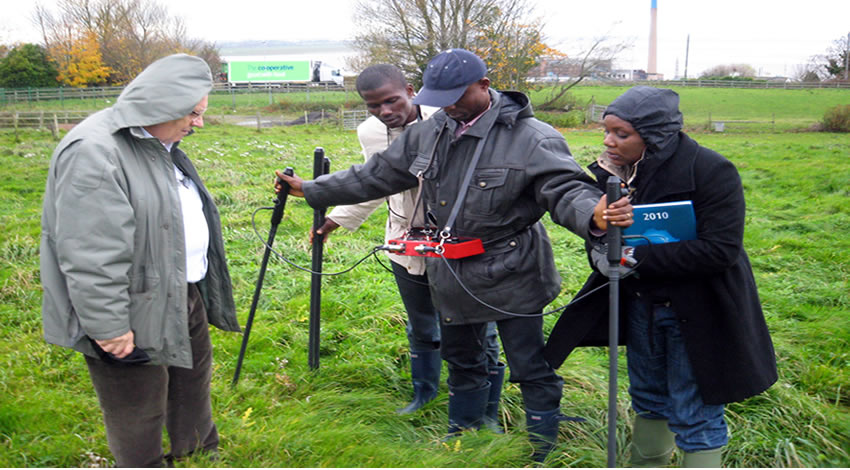
ICSCL’S Foreign Affiliation
To perfect and fine-tune services to clients, ICSCL has MOUs with companies/organizations abroad for technical backup.
